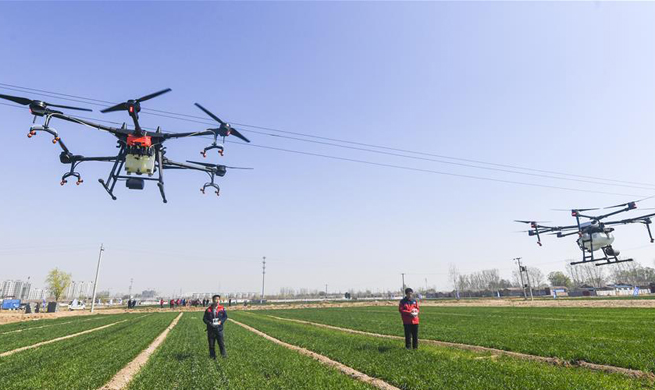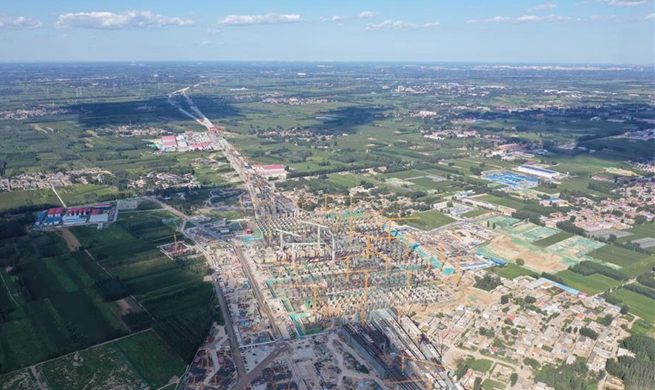BERLIN, Sept. 5 (Xinhua) -- A German expert with Hamburg Chamber of Commerce believes that there is a lot of potential for cooperation with Chinese partners under the framework of Belt and Road Initiative (BRI).
"We see great potential in linking Hamburg Port's Hinterland nodes to emerging trade and logistic centres along the continental routes of the BRI," said Robert Lorenz-Meyer, Commissioner for International Affairs, in an interview with Xinhua.
"Many of Hamburg's logistics and trade companies are already active on these routes. Further, we see a lot of potential for cooperation with Chinese partners in innovative fields such as intelligent transport systems and hydrogen technology," he continued.
Last week, Hamburg Chamber of Commerce released a paper titled "BELT AND ROAD INITIATIVE: exploit opportunities for Hamburg, shape connectivity on a European level".
The paper analyses developments related to Chinese investments which are relevant to Hamburg as multimodal logistics and trade hub for China, Russia, northern and eastern Europe as well as the Baltic region.
"We address measures and demands to the regional authorities to strengthen Hamburg's position as a centre for trade with China and to reap benefits arising from BRI activities across the globe, particularly along the existing Hinterland nodes of Hamburg's Port," Lorenz-Meyer noted.
According to the chamber, the main goal of this paper is to initiate a strategy process in which political and economic decision-makers define common goals and measures with regard to Hamburg's role as nodal point on the maritime and the continental routes of the BRI, as well as the European transport corridors.
"We endorse the EU's position on risks to strategic autonomy with regard to foreign investment in infrastructure, but are convinced that there are cooperation frameworks which benefit all parties," Lorenz-Meyer added.
In addition, Lorenz-Meyer told Xinhua that he is impressed by the pace and vigor in which China pursues its economic goals.
"It is also noteworthy how fast Chinese companies have achieved global competitiveness and, in some sectors, technological leadership," Lorenz-Meyer added.













